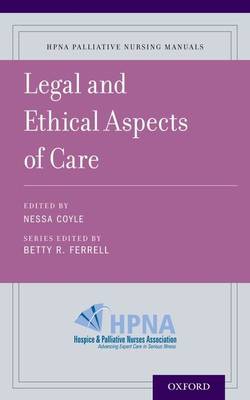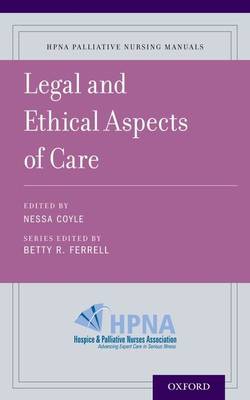
- Afhalen na 1 uur in een winkel met voorraad
- Gratis thuislevering in België vanaf € 30
- Ruim aanbod met 7 miljoen producten
- Afhalen na 1 uur in een winkel met voorraad
- Gratis thuislevering in België vanaf € 30
- Ruim aanbod met 7 miljoen producten
Zoeken
Omschrijving
Effective palliative care that rests on a sound ethical foundation requires ongoing discussions about patient and family values and preferences. This is especially important when addressing care at end-of-life including artificial nutrition and hydration, withdrawal of life-sustaining therapies and palliative sedation as well as requests for assistance in hastening death. The eighth volume in the HPNA Palliative Nursing Manuals series, Legal and Ethical Aspects of Palliative Care, provides an overview of critical communication skills and formal organizational mechanisms, such as ethics committees and interdisciplinary rounds, required for decisions in ethical dilemmas which respect diversity in the views of colleagues, as well as patients. The content of the concise, clinically focused volumes in the HPNA Palliative Nursing Manuals series is one resource for nurses preparing for specialty certification exams and provides a quick-reference in daily practice.
Specificaties
Betrokkenen
- Auteur(s):
- Uitgeverij:
Inhoud
- Aantal bladzijden:
- 136
- Taal:
- Engels
- Reeks:
Eigenschappen
- Productcode (EAN):
- 9780190258061
- Verschijningsdatum:
- 2/02/2016
- Uitvoering:
- Paperback
- Formaat:
- Trade paperback (VS)
- Afmetingen:
- 127 mm x 201 mm
- Gewicht:
- 136 g

Alleen bij Standaard Boekhandel
+ 154 punten op je klantenkaart van Standaard Boekhandel
Beoordelingen
We publiceren alleen reviews die voldoen aan de voorwaarden voor reviews. Bekijk onze voorwaarden voor reviews.











